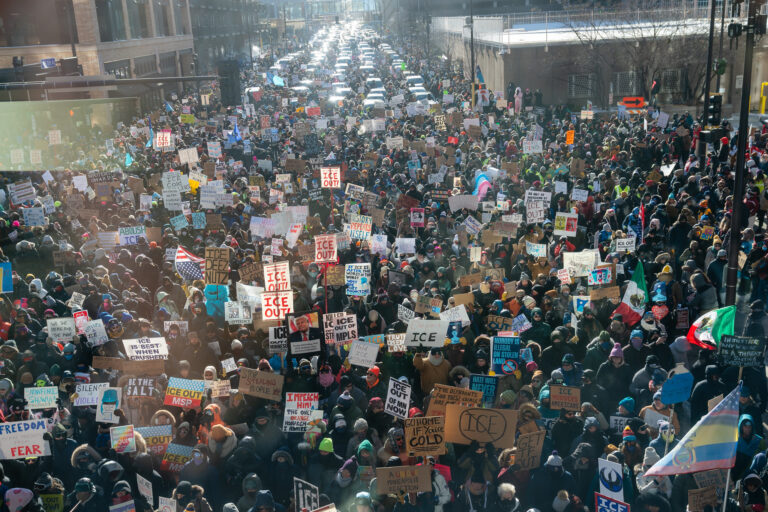
Brishen Rogers is an Associate Professor of Law at Temple University, a Visiting Professor at Georgetown University Law Center (Fall 2019), and a Fellow at the Roosevelt Institute.
Brishen Rogers
Associate Professor of Law, Temple University
Visiting Professor, Spring 2017, Washington University in St. Louis and European University Institute, Florence Italy
In recent years, political actors from a wide variety of backgrounds have begun to advocate for an unconditional basic income (UBI). The core idea is simple: the state would give all citizens or lawful residents regular cash grants without work requirements or means tests. I find the idea appealing, all else being equal, since it could help alleviate or even end dire poverty. But I believe any path to a progressive UBI must run through labor law reforms such as higher minimum wages and stronger collective bargaining rights. In this post, I explain why.
First, I should clarify what I mean by a “progressive” UBI. Many libertarians would simply use a UBI to replace all other forms of social insurance (like Social Security and Medicare) and welfare (like food stamps, housing assistance, and Medicaid). The theory is that a UBI would eliminate bureaucratic waste, and that if citizens had cash with no strings attached, they could always buy private insurance if needed.
The problem is that a libertarian UBI may end up undermining rather than enhancing economic security. If means-tested welfare benefits are eliminated, the poor may end up with fewer overall resources. Moreover, Social Security and Medicare may be far cheaper to manage than their private sector analogues due to economies of scale.
A “progressive” UBI, in contrast, would generally supplement rather than replace existing social insurance and welfare programs. This would do more to enhance economic security and to reduce inequality and poverty. But it would be very expensive. In an influential book on the subject, former SEIU President Andy Stern estimates that a UBI of $1,000/month for all citizens would cost around $2.7 trillion per year. The net price may be lower due to income-based phase outs, but there is no way around the fact that a progressive UBI would constitute a massive redistribution of income and wealth.
The price tag would be borne not just by the extremely wealthy, but also by a group that is much larger, and in some ways more politically powerful: the top 20% of the income distribution. As Richard V. Reeves makes clear in a forthcoming book, opposition from that group stopped a proposed Obama-era reform to 529 plans, tax-favored savings accounts for college education that had been introduced by the George W. Bush Administration. That group would also tend to oppose an elimination of the mortgage interest deduction, a tax on private school tuition, and perhaps a carbon tax.
One can’t blame them – or “us,” if, like me, you’re a U.S. law professor. In the U.S., a decent life for one’s children generally means the “best” education and neighborhood, which aren’t cheap. Economic security means accumulating assets in housing, IRAs, and other tax-advantaged investments. The problem – and it is a huge problem – is that we’ve built a society around those goals and ideals. The upper-middle class lives in class-segregated neighborhoods, attends class-segregated schools, and socializes in class-segregated enclaves. The taxes required for a progressive UBI would make it harder for upper-middle class families to do all those things, and would not deliver anything of value to them. So if any UBI were passed tomorrow, the wealthy and the upper-middle class would surely push for its repeal. We could then end up with no UBI, no social insurance, and no welfare benefits, which would be a disaster.
There are, of course, other ways of organizing a vibrant capitalist economy. The Nordic “social democratic” or “flexicurity” model is appealing, as it seems to successfully combine innovative private enterprise with high levels of economic equality and social mobility. But that model is very, very different from the U.S. model. For example, pensions, health care, and high quality education are universal entitlements, mitigating the need for personal savings. Unions are also very strong and set high wages through sectoral-level bargaining. And of course taxes are very high. While upper-middle class Scandinavians bristle at high tax rates, the high quality of public services has ensured their buy-in to the overall system, at least so far.
In the U.S., this suggests that getting to a progressive UBI requires steering the economy and the class structure in a more egalitarian direction over decades, not years. The political coalition capable of driving such a change would surely include unions, civil rights organizations, religious progressives, and newer progressive organizations such as MoveOn and Indivisibles. The policies should include baby steps toward a UBI such as unconditional child allowances – which, notably, most Scandinavian countries have adopted.
But we also need policies to raise the wages of the bottom 50% and to reduce the income and wealth of the top 1%, 5%, and 20%. These are, in part, two sides of the same coin. Public debate tends to assume that the only way companies can adapt to higher wages, in the absence of productivity enhancements, is by hiring fewer workers. But businesses can also adapt by reducing managers’ pay, and by reducing returns to investors. In fact, the CBO has estimated that the burden of a minimum wage increase would largely be borne by wealthier households due to higher prices and loss of business income.
Such income compression policies are crucial because they alter a country’s class structure and political economy. After getting a raise, workers may have higher expectations for their future, and may be more willing to fight for that future. The organizations that lead these battles could emerge more powerful, and act as a counterweight to wealthy interests in our politics. They could then advocate for other programs to help workers, including childcare, health care, greater investment in education and infrastructure, and perhaps even formal limits on salary differences between high- and low-wage employees.
Ideally this would create a virtuous cycle, where those at the top enjoy some discrete benefits such as cheaper health care and public education, and perhaps less status anxiety. They may then start accumulating and consuming fewer positional goods. In the longer term, as the distribution of income and power in society begins to change, a progressive UBI may then become politically feasible.
How to achieve income compression? Raising the minimum wage to $15 per hour would give roughly the bottom half of the income bracket a raise, and very likely reduce incomes at the top. If #FightFor15 can’t achieve a national $15 minimum, then raising wages across the board at retailers, fast food outlets, restaurants, and for home care and child care workers would start to accomplish the same goal.
Labor law reforms could encourage that organizing, whether on the Wagner model of exclusive representation, a modified version of it, or something more akin to what Kate Andrias has called “social bargaining.” Given strong evidence that robust sectoral-level bargaining tends to correlate with income compression, in my view we should pursue sectoral strategies through whatever legal means are possible.
So to sum up: rather than pushing for a UBI in hopes it would alter our political economy, we should be building the sort of political economy that can make a progressive UBI possible.









Daily News & Commentary
Start your day with our roundup of the latest labor developments. See all
February 23
In today’s news and commentary, the Trump administration proposes a rule limiting employment authorization for asylum seekers and Matt Bruenig introduces a new LLM tool analyzing employer rules under Stericycle. Law360 reports that the Trump administration proposed a rule on Friday that would change the employment authorization process for asylum seekers. Under the proposed rule, […]
February 22
A petition for certiorari in Bivens v. Zep, New York nurses end their historic six-week-strike, and Professor Block argues for just cause protections in New York City.
February 20
An analysis of the Board's decisions since regaining a quorum; 5th Circuit dissent criticizes Wright Line, Thryv.
February 19
Union membership increases slightly; Washington farmworker bill fails to make it out of committee; and unions in Argentina are on strike protesting President Milei’s labor reform bill.
February 18
A ruling against forced labor in CO prisons; business coalition lacks standing to challenge captive audience ban; labor unions to participate in rent strike in MN
February 17
San Francisco teachers’ strike ends; EEOC releases new guidance on telework; NFL must litigate discrimination and retaliation claims.